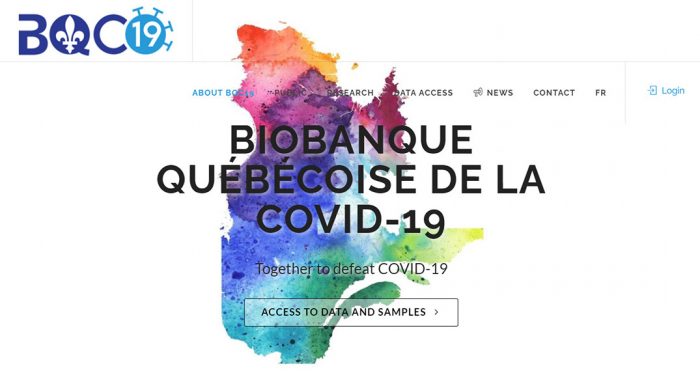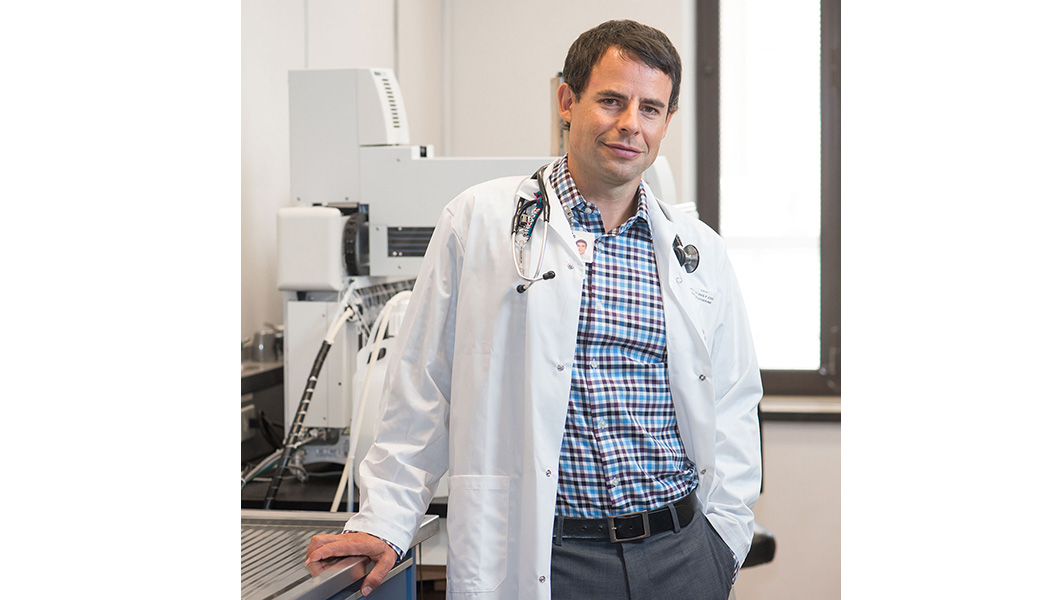
Source: JGH
A $690,000 expansion is on the way for the biobank at the JGH that collects and stores biological samples of COVID-19 to help researchers better understand the virus and devise new ways to fight it.
Funding is being provided by the Canadian Foundation for Innovation and by Quebec’s Ministry of the Economy and Innovation, in order to enhance the Quebec COVID-19 Biobank, which was established at the hospital this past April.
The biobank holds Canada’s largest compilation of COVID-19 data and biological samples, and is among the world’s most widely used collections of its type. About 70 per cent of the samples were collected at the JGH.
Information gathered by the Quebec COVID-19 Biobank is considered to be a critical step in improving the diagnosis, treatment and outcomes of individuals who have been affected by the virus.
The additional funding will be used to bolster the biobank’s infrastructure and to ensure that its Biosafety Containment Level is adequate for a facility that processes thousands of COVID-19 samples and prepares them for research.
As well, the funding will give the biobank the high-performance computational ability to process the hundreds of millions of data points that are generated for each subject. This makes the data capable of being properly prepared (with appropriate quality control measures), stored and shared.
“CIUSSS West-Central Montreal and its member facility, the JGH, are proud to be playing a prominent role in the effort to gain a better understanding of COVID-19 and eliminate the risk that it poses,” says Dr. Lawrence Rosenberg, the CIUSSS’s President and CEO.
“When the crisis began, the JGH was initially one of only four hospitals in Quebec to be designated by the government to treat hospitalized COVID-19 patients. Since then, our ongoing commitment has been not only to safeguard the well-being of healthcare users in our area, but to do what we can to help people throughout our city and province to fight back against the virus.”
 Quebec and the biobank, in particular, have taken a leadership role in this field, resulting in 51 applications to date for access to its data and samples, submitted through the COVID-19 Rapid Response Program of the Canadian Institutes for Health Research (CIHR).
Quebec and the biobank, in particular, have taken a leadership role in this field, resulting in 51 applications to date for access to its data and samples, submitted through the COVID-19 Rapid Response Program of the Canadian Institutes for Health Research (CIHR).
“This award provides evidence of the importance of this resource to Canada’s health research community,” says Dr. Brent Richards, a genetic epidemiologist at the Lady Davis Institute, an endocrinologist at the JGH, and one of biobank’s principal investigators.
“Biological samples from patients who currently have, or have recovered from, COVID‑19 are critical to designing a vaccine and developing therapeutics,” says Dr. Richards.
“We are trying to identify genetic biomarkers to explain why the illness is so severe in some patients and benign in others. We need to distinguish the antibodies produced by asymptomatic patients, so that we can discern how to most effectively immunize against the virus.”
He adds that the research that results from the biobank “will advance our understanding of the determinants of susceptibility and severity to COVID-19. We are extremely grateful for this infusion of financial support and the ability to invest in the infrastructure necessary for our work.”
December 2 2020
